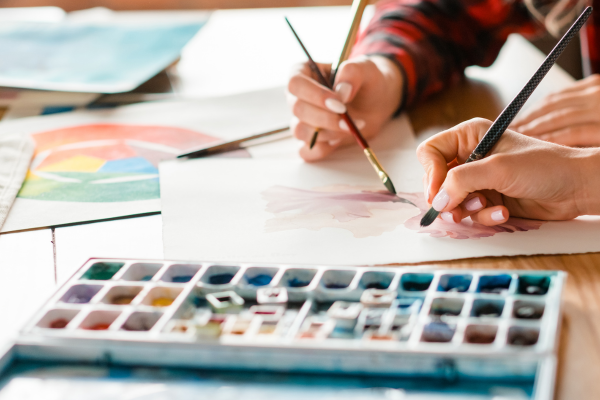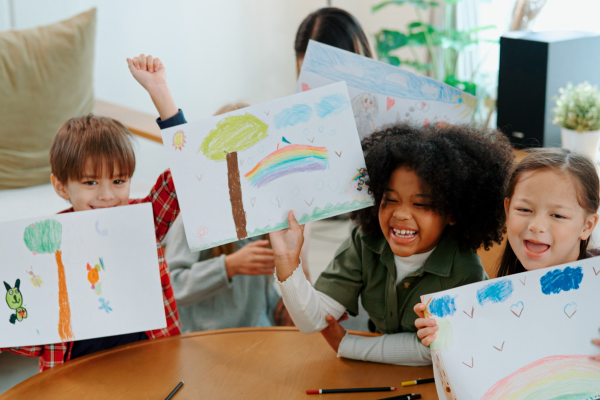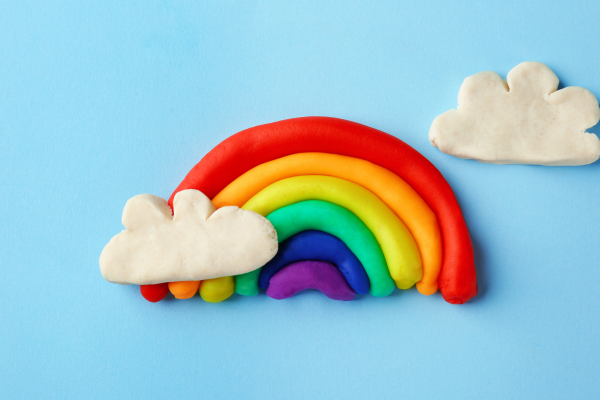
As a child psychologist and education therapist with over a decade of experience, I’ve witnessed the transformative power of various intervention methods for children on the autism spectrum. Today, I want to delve into the world of art therapy, a unique approach that unlocks a powerful avenue for communication, expression, and emotional regulation in autistic children.
The Challenges of Communication and Expression

For many autistic children, the world can be a whirlwind of sensory experiences, social complexities, and unspoken emotions. Traditional methods of communication, heavily reliant on verbal language, can leave them feeling misunderstood and frustrated. This can manifest in a multitude of ways, including social withdrawal, behavioural outbursts, or meltdowns.
Art Therapy: A Safe Space for Exploration

Art therapy offers a safe haven for autistic children to express themselves beyond the limitations of spoken language. Through the exploration of various art materials, textures, and colours, they create a visual language that speaks volumes about their inner world. Here’s how art therapy empowers autistic children:
Non-verbal Communication: Art becomes a bridge, allowing children to express emotions, experiences, and desires that might be difficult to articulate verbally. The therapist can interpret the symbolism, colors, and techniques used in the artwork to gain a deeper understanding of the child’s emotional landscape.
Sensory Exploration: Art therapy provides a platform for sensory exploration in a controlled and supported environment. The textures of paints, the feel of clay, the rhythm of music – all these elements can be calming and stimulating for autistic children, promoting self-regulation and focus.
Improved Social Interaction: Art therapy sessions can be conducted individually or in small groups, fostering a sense of community and shared experience. Children can learn to collaborate on projects, take turns, and appreciate the diverse expressions of their peers.
Emotional Regulation: Through the creative process, children can explore and manage their emotions in a healthy way. Art therapy allows them to process frustration, anxiety, or overwhelming feelings by channeling them into the artwork.
Beyond the Art Room: Lasting Benefits

The benefits of art therapy extend far beyond the walls of the therapy room. Here’s how it can positively impact an autistic child’s overall well-being:
Enhanced Fine and Gross Motor Skills: The manipulation of art materials strengthens fine and gross motor skills, improving dexterity and coordination. This can translate into better handwriting, self-care skills, and overall physical development.
Increased Confidence and Self-Esteem: Creating art allows children to experience a sense of accomplishment and pride. Seeing their creations come to life builds confidence and fosters a love of learning.
Improved Attention Span and Focus: Art therapy sessions require sustained attention and focus on the task at hand. This can improve concentration skills that benefit children not only in therapy but also in academic settings.
Art Therapy at ONE Intervention Centre

At ONE Intervention Centre, we believe in the holistic development of autistic children. Our Horizons Series incorporates art therapy as a key component, alongside other therapies like social skills training and play therapy. This comprehensive approach ensures that children benefit from a multi-faceted program tailored to their individual needs.
Is Art Therapy Right for Your Child?
If you’ve noticed your child struggling with communication, emotional expression, or social interaction, art therapy might be a valuable addition to their intervention plan. Consider contacting ONE Intervention Centre to discuss how this unique therapy can unlock your child’s potential.
Remember, every child is unique. The journey towards unlocking their potential is a collaborative effort. We, at ONE Intervention Centre, are here to support you and your child every step of the way.

